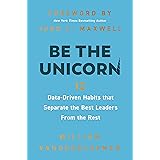The global Artificial Intelligence (AI) market is projected to reach an astounding $1.8 trillion by 2030, a clear indicator of its pervasive influence across industries. Within this transformative landscape, India stands poised at a critical juncture, with AI adoption rapidly reshaping its economic and professional fabric. While the video above provides a concise overview, this article delves deeper into the profound shifts AI is orchestrating within the Indian job market, highlighting new career paths and essential competencies for professionals looking ahead to 2025 and beyond.
The Shifting Landscape of AI in India: A Workforce Transformation
The integration of AI technologies across various sectors in India is not merely an incremental change; it represents a fundamental re-evaluation of traditional job roles and organizational structures. Projections indicate that AI could add $500 billion to India’s GDP by 2025, driving significant economic expansion but simultaneously demanding a highly adaptive workforce.
This digital metamorphosis presents a duality: the automation of repetitive tasks and the creation of entirely novel, high-value positions. Consequently, professionals must comprehend the nuances of this transformation to strategically position themselves for future success.
Automation and Job Redundancy: A Closer Look
Historically, technological advancements have always led to some degree of job displacement, and AI is no exception. Tasks that are routine, data-intensive, and predictable are increasingly susceptible to automation. For instance, roles in data entry, basic customer service, and certain manufacturing processes are already experiencing significant shifts.
Reports suggest that while approximately 10-15% of existing jobs in India might face automation pressure by 2030, the net impact remains positive due to the emergence of new roles. This necessitates a proactive approach to skill development, ensuring professionals are equipped to transition into value-added functions.
Unlocking New Career Paths: India’s AI Job Market in 2025
The proliferation of AI is not solely about replacing existing roles; critically, it is about generating a fresh ecosystem of specialized positions that demand human ingenuity, critical thinking, and advanced technical skills. By 2025, India’s burgeoning AI sector is expected to create millions of new jobs, ranging from technical specialists to ethical oversight roles.
Understanding these emerging opportunities is paramount for professionals aiming to carve out successful careers. The demand for AI talent is escalating, with a significant talent gap already evident in specialized domains.
Key AI Roles Powering India’s Digital Future
As the AI revolution gains momentum, several distinct career paths are emerging as particularly vital for India’s technological progression. These roles require a blend of analytical prowess, programming expertise, and an understanding of specific AI frameworks:
- AI/ML Engineers: These professionals are at the forefront, designing, building, and deploying AI models and machine learning algorithms. Their work spans data processing, model training, and integration into existing systems.
- Data Scientists: Tasked with extracting insights from complex datasets, data scientists apply statistical methods and machine learning algorithms to solve business problems. They are crucial for interpreting AI model outputs and guiding strategic decisions.
- Prompt Engineers: A relatively new but rapidly growing field, prompt engineers specialize in crafting effective prompts for generative AI models, optimizing their performance for specific applications and ensuring relevant, high-quality outputs.
- AI Ethicists and Governance Specialists: With the increasing societal impact of AI, these experts focus on developing ethical guidelines, ensuring fairness, transparency, and accountability in AI systems. Their role is critical in mitigating biases and ensuring responsible AI deployment.
- Robotics Engineers: As AI powers advanced robotics, these engineers design, develop, and maintain robotic systems for various applications, from manufacturing to healthcare.
- Computer Vision Engineers: Specializing in enabling computers to “see” and interpret visual data, these engineers develop algorithms for image recognition, object detection, and video analysis, crucial for autonomous systems and surveillance.
- Natural Language Processing (NLP) Specialists: Focused on the interaction between computers and human language, NLP specialists develop systems for speech recognition, language translation, and sentiment analysis, driving advancements in virtual assistants and communication tools.
Future-Proofing Careers: Essential Skills for AI Success in India
Navigating the AI-driven job market effectively necessitates a strategic acquisition of both technical and interpersonal skills. Professionals must continually evolve their capabilities to remain competitive and relevant.
The pace of technological change demands a commitment to lifelong learning, emphasizing adaptability and a growth mindset.
Technical Proficiencies in the Age of AI
For those aspiring to AI-centric roles, a robust technical foundation is non-negotiable. Proficiency in specific programming languages and a deep understanding of core AI concepts are fundamental:
- Programming Languages: Python is the lingua franca of AI and machine learning due to its extensive libraries (TensorFlow, PyTorch, scikit-learn). R is also valuable for statistical analysis.
- Machine Learning (ML) & Deep Learning (DL) Frameworks: Expertise in frameworks like TensorFlow, PyTorch, Keras, and scikit-learn is crucial for building and deploying AI models.
- Data Management and Databases: Understanding SQL, NoSQL databases, and big data technologies (e.g., Hadoop, Spark) is essential for handling large volumes of data.
- Cloud Platforms: Familiarity with cloud services like AWS, Azure, or Google Cloud Platform, especially their AI/ML offerings, is increasingly vital for scalable AI deployments.
- Mathematics and Statistics: A strong grasp of linear algebra, calculus, probability, and statistics forms the bedrock for understanding and optimizing AI algorithms.
The Indispensable Soft Skills for AI Innovators
Beyond technical prowess, a suite of soft skills significantly amplifies an individual’s value in the AI landscape. These skills enable effective collaboration, problem-solving, and ethical decision-making:
- Critical Thinking and Problem-Solving: AI systems often present complex challenges requiring innovative solutions and a systematic approach to debugging and optimization.
- Adaptability and Continuous Learning: Given the rapid evolution of AI technologies, the ability to quickly learn new tools and concepts is paramount.
- Communication Skills: Translating complex AI concepts into understandable insights for non-technical stakeholders is a highly valued skill.
- Ethical Reasoning: As AI influences critical decisions, understanding and applying ethical principles to AI development and deployment is crucial.
- Creativity: Designing novel AI applications and thinking beyond conventional approaches will differentiate professionals.
The Upskilling Imperative: Adapting to AI’s Demands
The rapid evolution of AI technology means that skills acquired five years ago may not be sufficient for the demands of today. Consequently, continuous upskilling and reskilling have transitioned from being optional advantages to absolute necessities for career longevity and advancement in India.
A recent NASSCOM report highlighted that India requires 1.4 million upskilled professionals in AI and data science alone by 2025 to meet industry demands. This substantial gap underscores the urgent need for accessible and high-quality educational programs.
Strategic Reskilling Initiatives for Indian Professionals
To bridge the talent gap and empower the workforce, several avenues for reskilling and upskilling are gaining prominence. These initiatives offer structured learning paths tailored to current industry needs:
- Online Courses and Certifications: Platforms offering specialized certifications in AI, Machine Learning, Data Science, and specific AI tools are highly effective. These often provide practical, project-based learning.
- Bootcamps and Intensive Programs: For those seeking accelerated learning, immersive bootcamps offer focused training to quickly gain hands-on expertise in specific AI domains.
- Corporate Training Programs: Many forward-thinking organizations are investing heavily in training their existing workforce in AI competencies, fostering an internal culture of innovation.
- Higher Education Specializations: Universities are increasingly offering postgraduate diplomas and master’s degrees in AI and related fields, catering to both fresh graduates and experienced professionals.
Sector-Specific Impacts: Where AI is Driving Growth in India
While AI’s influence is widespread, certain sectors in India are experiencing particularly pronounced shifts and growth due to its adoption. These industries are becoming hotbeds for AI-driven job creation and innovation.
Understanding these sector-specific dynamics can guide career choices and specialization efforts for Indian professionals.
High-Growth Sectors and Their AI Integration
The pervasive nature of AI ensures its integration across nearly every industry; however, a few sectors in India are leading the charge, creating significant demand for AI professionals:
- IT & Software Development: This sector remains the largest adopter and creator of AI solutions, from developing core AI platforms to embedding AI into enterprise applications.
- Healthcare: AI is revolutionizing diagnostics, drug discovery, personalized medicine, and operational efficiencies within hospitals, leading to demand for AI in bioinformatics and medical imaging.
- Financial Services (FinTech): AI is crucial for fraud detection, algorithmic trading, personalized banking, and risk assessment, creating roles in AI-driven financial analytics.
- Manufacturing: Smart factories leveraging AI for predictive maintenance, quality control, supply chain optimization, and robotic automation are generating demand for AI in industrial automation.
- Retail & E-commerce: AI powers personalized recommendations, demand forecasting, inventory management, and customer service chatbots, driving innovation in retail tech.
- Automotive: The advent of autonomous vehicles and smart transportation systems is creating a surge in demand for AI professionals in computer vision, sensor fusion, and robotics.
The transformative power of Artificial Intelligence is undeniable, fundamentally reshaping the Indian job market and creating a multitude of exciting career opportunities for 2025 and beyond. Professionals who strategically embrace continuous learning and skill development will not only navigate this change but thrive within it. Investing in AI career paths in India is a strategic move towards a future brimming with innovation and growth.
Future-Proofing Indian Careers with AI: Your Questions Answered
How is AI changing jobs in India?
AI is significantly transforming India’s job market by automating routine tasks and creating many new, high-value career opportunities. This leads to a re-evaluation of traditional job roles and demands a more adaptive workforce.
Will AI cause job losses in India?
While AI may automate some routine tasks, leading to shifts in certain jobs, the net impact is expected to be positive due to the creation of many new roles. Professionals will need to adapt and develop new skills to transition successfully.
What new career paths are emerging in India due to AI?
New career paths include roles like AI/ML Engineers, Data Scientists, and Prompt Engineers. There’s also growing demand for specialists in areas such as AI ethics, robotics, computer vision, and natural language processing.
What skills are important for a career in AI in India?
Essential technical skills include proficiency in programming languages like Python and knowledge of Machine Learning/Deep Learning frameworks. Important soft skills include critical thinking, problem-solving, adaptability, and a commitment to continuous learning.









